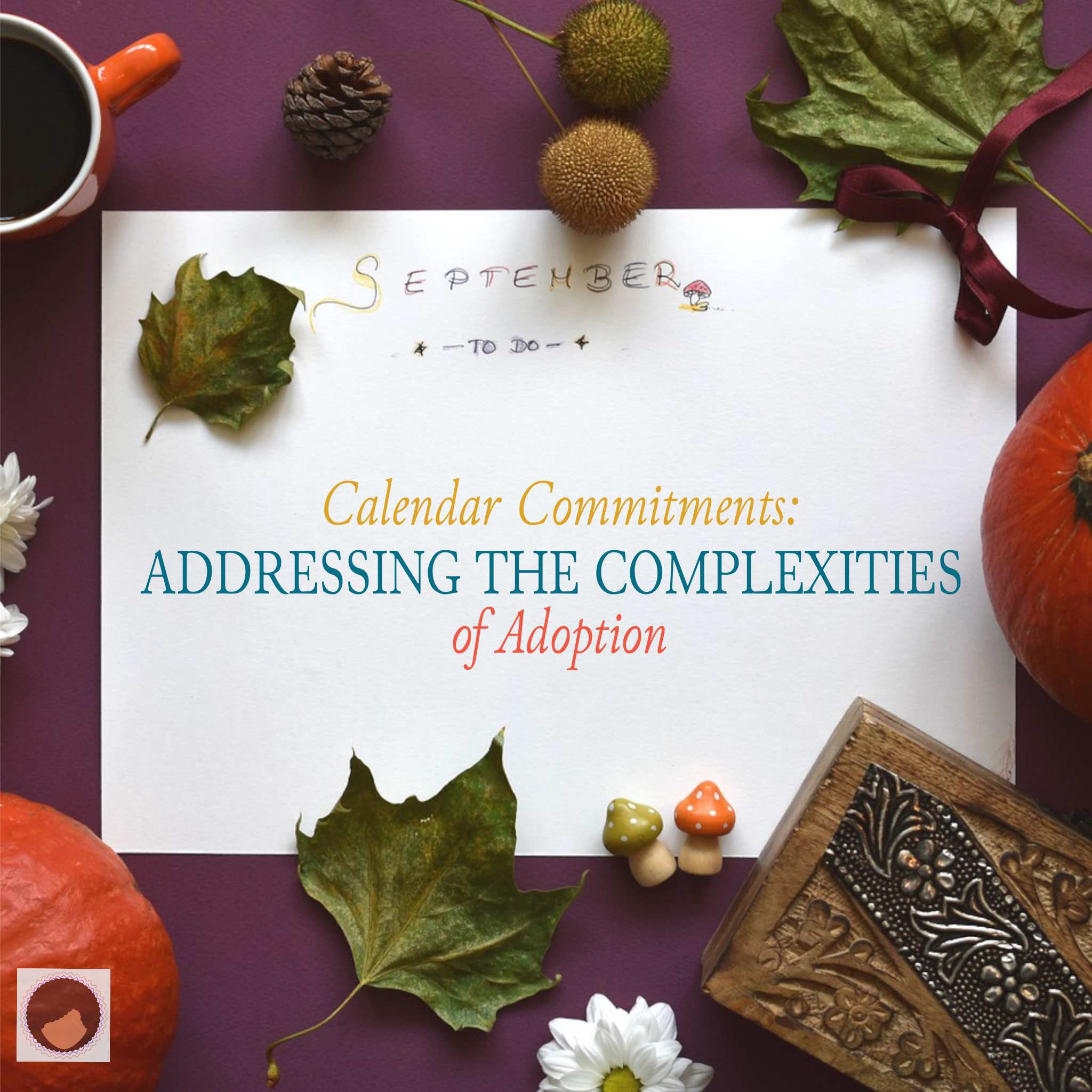Calendar Commitments: Addressing the Complexities of Adoption
Navigating: Moving Through Life with Clarity and Confidence
September marks a new academic year and many families return to a more regular routine with commitment-filled calendars and children’s activities. While it can be both an exciting time for children to return to the classroom and can also be a time for families to regroup and recommit to creating the space to focus on developing healthy identity, building strong relationships, and facing and embracing differences. This month of September, can be the perfect opportunity to revisit the calendar and make sure there is time for navigating the intersectional complexities of family reconfiguration and take time as a family to engage in conversation, reflection, and activities that focus on the unique experience of becoming a family through adoption, foster care, or guardianship.
Developing Healthy Identity
Finding time each month to focus identity development is important to ensure children have a healthy view of themselves and their unique family experience. This will include making sure there is space to express the ‘both/and’ of separation from family of origin. Not having biological connections to the family that surrounds you and not having proactive dialogue about the feelings that can come with this experience, can result in confusion, sadness, and worry. Making sure all members of the family have language and space to express their different feelings is key to creating the conditions for a healthy path to identity for children and the family as a whole.
One tip is to carve out family time each week where the family can play a game or engage in an activity that allows for conversation to flow freely. Sometimes when children are engaged in a fun activity like a game or scavenger hunt they will feel less self-conscious about voicing the different things they are thinking about themselves and their families. This includes opportunity to discuss feelings about family of origin. There is no right ot wrong time, whatever time is best based on your family’s schedule is the time you should dedicate. Regardless of the exact time, make sure it’s on the calendar each week just like dance class and school clubs! Otherwise, before you know it, the month is over and those intentional conversations did not happen.
Building Strong Relationships
Strong relationships are built on love, trust, and commitment and all of these elements require effort. For adoptive families, extended family relationships will always include members of the child’s family of origin. You may or may not be in contact with these members of your family yet they will always exist and are an essential component of your child’s healthy identity development. If you are in contact, make sure that contact is as consistent as possible. Is there time on the calendar each month for communication with these family members? Can they be invited to a child’s athletic or school event? If you’re not in contact with them, how can you make regular time to ensure these family members are spoken about? Create the space for your child to feel safe in expressing the different questions and feelings they have as they navigate the complex experience of gaining one family through adoption and losing connections to their original family. Make a note on your calendar every month to find time for these important relationships. They are key to your family embracing a healthy adoptive family identity and for opening the space for the many feelings that are attached to the deep identity work related to adoption.
Facing and Embracing Differences of Race, Class and Culture
Because no two families have the same culture, all adoptions are transcultural in nature with transracial adoption having added layers of complexity. When parents are raising children who are ethnically, racially, and culturally different they will face questions from others and must hone the skills needed to ensure their children are effectively able to integrate their family of experience with their birth culture. Make sure your monthly calendar includes ample time to engage in multicultural activities for the entire family. Remember embracing differences in race, class and culture will always be more than engaging in token events. Attending festivals that focus on different cultures and celebrating culturally relevant holidays are both important and can be fun. But embracing a diverse lifestyle means that grown-ups and parents take the lead and regularly have connections to people and activities that demonstrate the true diversity of our world. Make sure your calendar is filled with regular opportunities for you to elevate your connections to culture that do not include your children so you can grow and be on your journey to a higher level of cultural awareness.
While September is not the official start to the new year, it is a reset of sorts and can be a time for families to commit to learning new things about themselves and their adoption experience as a whole. A practical place to start is with your calendar. Take the time now to make sure your calendar includes a healthy balance of family time that blends the core tasks of identity development, relationship building, and facing and embracing differences of race, class and culture. This way, you and your children will have the time and space necessary to grow together with you leading the way.
Tune in to the Born in June, Raised in April Podcast on all podcast platforms.
